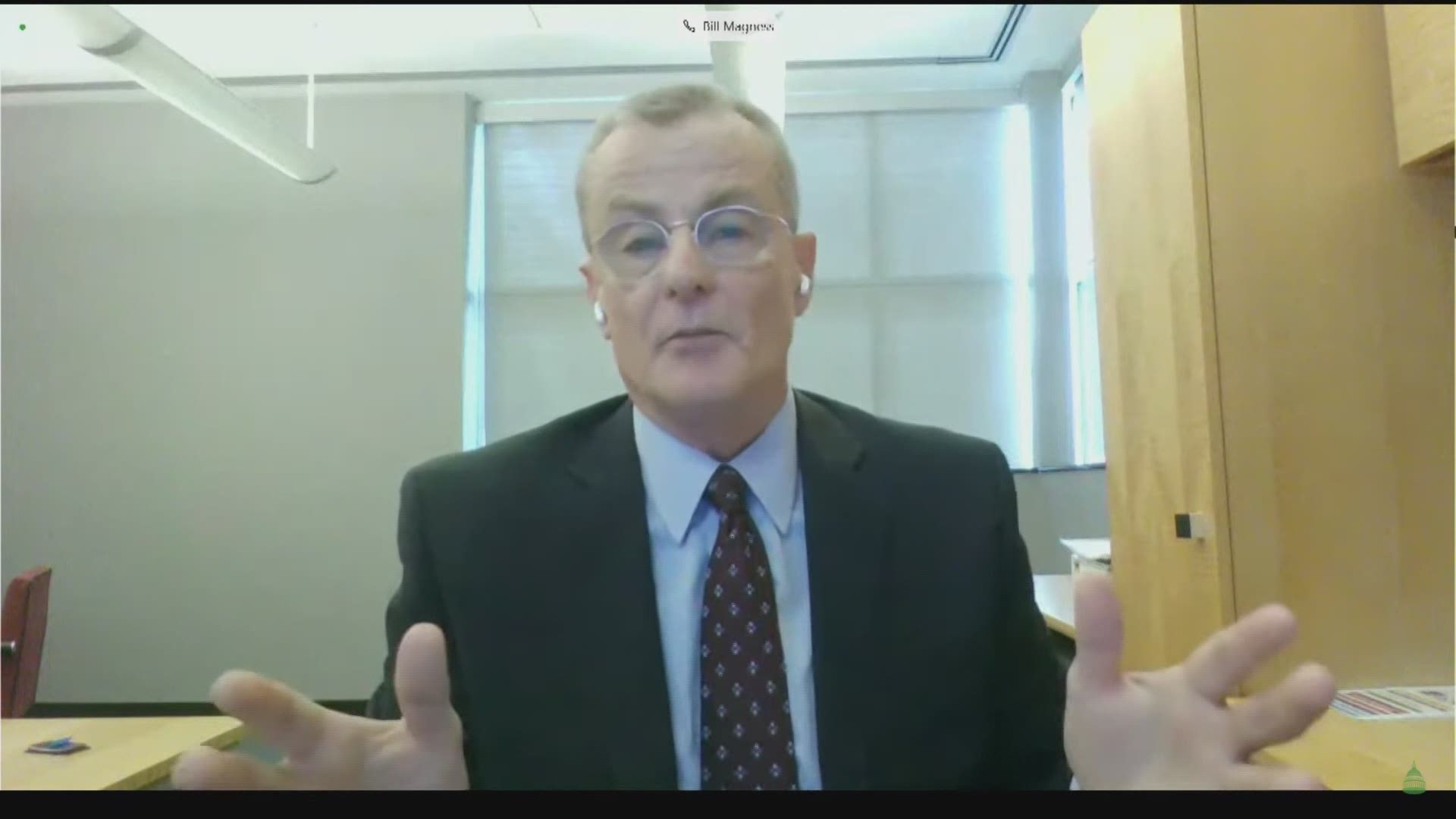Congress is looking into last month's massive and deadly power outages across Texas and questioning officials who oversee the state's energy industry and electric grid.
A House Energy Committee on Wednesday heard from Bill Magness, the outgoing CEO of the grid operator, the Electric Reliability Council of Texas, and Christi Craddick, chair of the Texas Railroad Commission.
Among the critical members of Congress was North Texas Rep. Mark Veasey.
“We were literally less than five minutes away from the entire grid crashing,” Veasey said. “We had people sleeping inside their kitchens, next to their stove, so they can stay warm.”
In written testimony submitted before the hearing, Houston Mayor Sylvester Turner said the Texas grid was designed for peak summer heat, and policymakers wrongly believed that a 2011 severe winter storm that caused outages was an anomaly.
Turner said state leaders assumed that a pricing system that rewards power companies for generating when electricity is in high demand would compel those companies to be prepared for the next big winter storm.
"It did not happen," he said. "The magnitude of the damages was foreseeable and preventable."
Turner was asked about what needs to improve.
“Infrastructure needs to be improved. It is outdated,” Turner said. “I do agree we need to rely more on technology and I do agree we need to have energy storage, but you have to factor into the equation that the storms are coming with greater frequency and greater intensity.”
For nearly a week in mid-February, most of the state suffered through subfreezing temperatures. Millions lost power and heat. When pipes burst and water systems shut down, Texans were told to boil water for drinking — if they still had a way to boil water.
An early count by state officials puts the death toll from the week at 57, but that is likely a wide undercount. Some of the largest counties, including Bexar, where San Antonio is located, and Travis, home to Austin, have not reported figures yet.
Power from natural gas, coal, nuclear, wind and solar sources all dropped during the storm. Grid officials said critical gas-fired plants shut down for lack of fuel.
In his written testimony, Magness repeated what he has already told the Texas Legislature: At its peak the storm took out nearly half the grid's power-generating capacity, and ERCOT had no choice but to order rolling outages to prevent long-lasting damage to electric infrastructure. That kind of blackout might have taken weeks to repair, he said.
The outgoing Ercot CEO said public communication fell short alerting Texans about continued power outages.
“There was a strong need to get public safety communication out very, very broadly to Texans to understand that this could go on for a while,” Magness said.
Magness said he hopes state leaders are able to work out a new type of alert system.
“To have some sort of Amber Alert or broad notification when this becomes a public safety issue,” Magness said.
Christi Craddick of the Texas Railroad Commission, which regulates the state's energy industry, defended her agency and the natural gas operators it oversees.
Craddick said gas wells shut down simply because they didn't have power, and she called gas producers heroes who were critical in restoring power. In her written testimony, Craddick did not mention any need for protecting wells from extreme winter weather.

